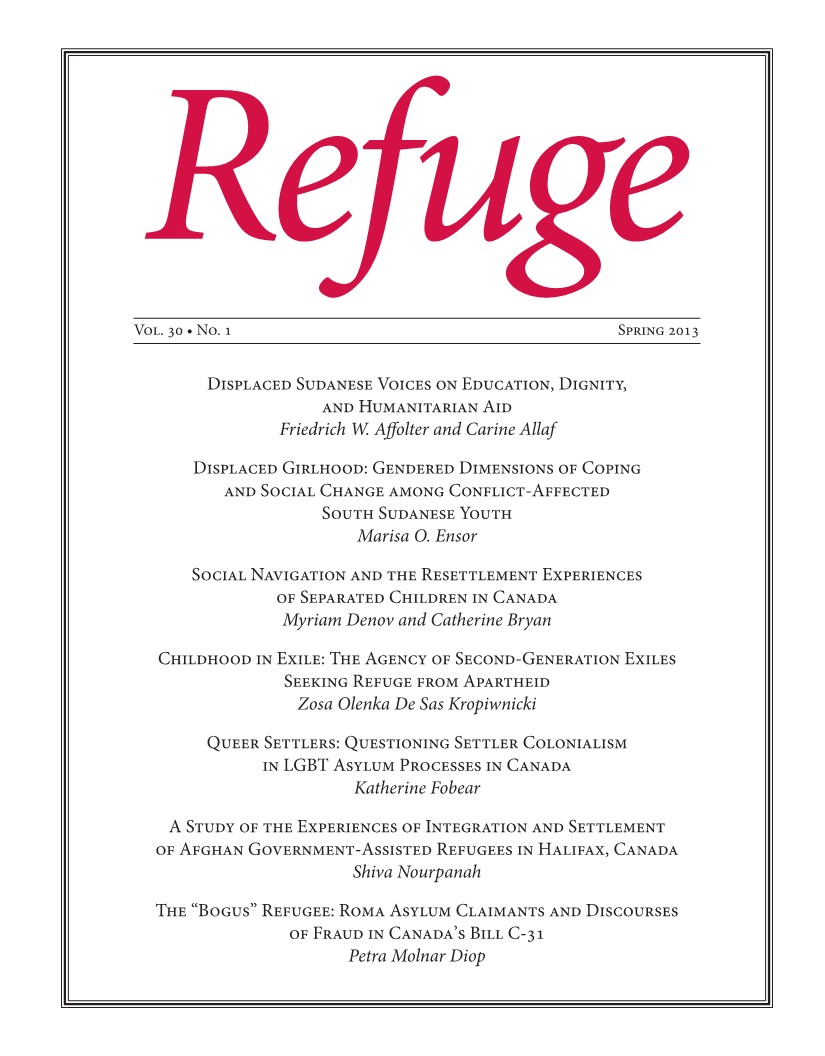Social Navigation and the Resettlement Experiences of Separated Children in Canada
DOI:
https://doi.org/10.25071/1920-7336.38600Keywords:
Canada, separated children, refugee children, resettlement, social navigation, discourse, agencyAbstract
This article explores the implications of language and discourse for the experiences of separated refugee children in Canada, and the ways in which anti-refugee and anti-child discourses shape the terrain of resettlement. The article begins by tracing the academic and popular discourses of refugee populations generally, and separated children specifically. Given the formulaic and rigid portrayals and representations, we introduce the concept of social navigation, which provides a useful framework to study the resettlement experiences of separated children. Following an overview of the study’s methodology, we explore the social navigation and resettlement experiences of seventeen youth. In particular, we highlight the creative, resourceful, and thoughtful ways in which the youth navigated the refugee determination system, experiences of discrimination and isolation, as well as separation and loss during the resettlement process. The article ultimately underscores the ways in which these children and youth strategically navigate resettlement, overcome challenges, and—despite significant ideological barriers and material obstacles—ensure their survival and well-being as individuals and as groups.
Metrics
Downloads
Published
How to Cite
Issue
Section
License
Copyright (c) 2014 Myriam Denov, Catherine Bryan

This work is licensed under a Creative Commons Attribution-NonCommercial 4.0 International License.
Refuge authors retain the copyright over their work, and license it to the general public under the Creative Commons Attribution-Non Commercial License International (CC BY-NC 4.0). This license allows for non-commercial use, reproduction and adaption of the material in any medium or format, with proper attribution. For general information on Creative Commons licences, visit the Creative Commons site. For the CC BY-NC 4.0 license, review the human readable summary.








